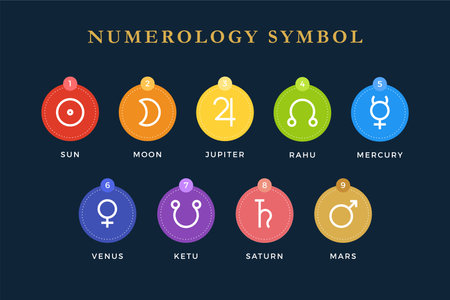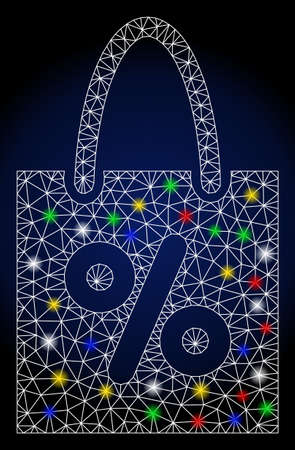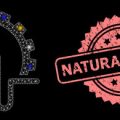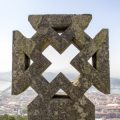1. Introduction to Numerology in British Culture
Numerology, the study of the mystical significance of numbers, holds a quietly intriguing place within British culture. Though often overshadowed by more mainstream traditions, the fascination with numbers has threaded its way through British history, from Druidic rituals to Victorian parlour games and modern-day spiritual circles. In the United Kingdom, curiosity about numerology is not limited to the realms of the occult; it seeps into everyday life, influencing decisions as mundane as choosing house numbers or wedding dates. The enduring appeal of numerology in Britain can be traced back to both ancient and imported systems, notably the Chaldean and Pythagorean methods. These frameworks have shaped how Britons interpret personal fate, luck, and identity through numbers. Whether discussed over a cup of tea or debated in online forums, numerology continues to captivate those seeking meaning beyond mere coincidence, reflecting a broader cultural tendency towards introspection and spiritual exploration.
2. Chaldean Numerology: Ancient Roots and Modern British Appeal
Chaldean numerology, with its origins tracing back to ancient Babylon, stands as one of the oldest systems of number mysticism. This tradition, which assigns unique vibrations to both numbers and letters, distinguishes itself from other numerological approaches by its focus on the interplay between name vibrations and destiny. In Britain, where spiritual curiosity often intersects with historical reverence, Chaldean numerology has found a new audience among those seeking meaning beyond the material world.
The system’s mystical elements—such as the belief that names and dates carry inherent energies—fit neatly into contemporary British spiritual practices. From yoga studios in London to holistic retreats in the Scottish Highlands, practitioners often integrate Chaldean readings into broader frameworks of mindfulness and self-discovery. The appeal lies in the blend of analytical structure and intuitive insight, which echoes the British appreciation for both rationality and mystery.
Chaldean Principle |
Modern British Application |
|---|---|
| Each letter has a specific numerical value (1-8) | Used to analyse personal names during naming ceremonies or rebranding processes |
| Numbers reveal hidden traits and destinies | Employed in personal coaching and self-reflection workshops |
| Mystical association with planetary influences | Integrated into astrology readings popular in British metaphysical circles |
The ongoing fascination with Chaldean numerology in Britain can also be traced to the country’s long-standing engagement with esotericism—from Victorian-era occult societies to modern-day spiritual communities. While some approach it with a sense of experimentation, others find genuine guidance in its patterns. For many Britons today, consulting Chaldean numerology is less about predicting fate and more about fostering a deeper connection with their inner selves and cultural heritage.

3. Pythagorean Numerology and Rational British Spirituality
When exploring the spiritual side of numerology within the UK, the influence of Pythagorean numerology stands out for its logical and systematic approach. Rooted in ancient Greek philosophy, this system assigns numerical values to letters in a straightforward way, creating an orderly framework that appeals to the British preference for rationality and structure. The British cultural landscape, shaped by centuries of empirical thinking and practical problem-solving, finds a certain comfort in methods that combine spiritual exploration with intellectual rigour.
Pythagorean numerology resonates particularly well with those in Britain who value a balance between mysticism and reason. Many individuals drawn to spiritual practices here appreciate systems that can be broken down, analysed, and discussed in concrete terms. This pragmatic embrace of numerology is evident not only among private enthusiasts but also within broader cultural conversations. In fact, it’s not uncommon to find British people weaving numerological insights into everyday life decisions—whether it’s selecting auspicious dates for major events or choosing names with favourable vibrations—while still maintaining a healthy scepticism rooted in the scientific tradition.
The structured nature of Pythagorean numerology fits seamlessly alongside British habits of critical enquiry. The methodology itself offers clear steps: translating names or birthdates into numbers, interpreting these through established meanings, and drawing connections to personality traits or life paths. This process-driven approach mirrors the analytical mindset fostered by the British education system and work culture, where clarity, transparency, and logical progression are highly prized.
Furthermore, the cultural tendency toward understatement and modesty in Britain influences how people engage with numerology. Rather than embracing overtly mystical claims, many prefer to see numerology as a tool for gentle self-reflection or personal development—one that complements rather than contradicts rational thought. Discussions around Pythagorean numerology often take on a tone of curiosity and experimentation rather than dogmatic belief, aligning with the national ethos of open-minded yet grounded exploration.
Ultimately, the presence of Pythagorean numerology in British spiritual life reflects an ongoing dialogue between faith and reason. By providing a framework that feels both accessible and intellectually satisfying, this system allows individuals to explore deeper meanings without straying too far from their cultural roots of pragmatism and critical thinking. It’s a testament to how numerological traditions can adapt and thrive within distinct national contexts, shaping beliefs in subtle but significant ways.
4. Numerology’s Role in British Daily Life and Popular Culture
Numerology, once considered a fringe belief, has found its way into various aspects of daily life and popular culture across the UK. The influence of both Chaldean and Pythagorean systems can be observed not just in spiritual circles but also within mainstream British society, subtly shaping decisions and traditions.
Numerological Ideas in British Media
British television, newspapers, and magazines often reference numerology, especially during significant events such as royal weddings or national elections. For example, news outlets sometimes highlight “lucky” dates for major public occasions or explore whether the numerological values of a new baby’s name might indicate a bright future. Even in soap operas and dramas, characters may consult numerologists before making critical decisions, reflecting a growing cultural acceptance of these ancient practices.
Public Events and Superstitions
Certain numbers have acquired symbolic status in the UK, influenced by both numerology and longstanding local superstitions. The number 7 is widely regarded as lucky, while 13 remains infamous for its association with misfortune. This blend of numerological tradition and British folklore surfaces in everything from sports (such as football shirt numbers) to the scheduling of major events.
Table: Commonly Perceived “Lucky” and “Unlucky” Numbers in British Society
| Number | Perception | Context/Example |
|---|---|---|
| 7 | Lucky | Lottery draws, birthdays, wedding dates |
| 8 | Prosperity (influenced by Asian cultures) | House numbers, business addresses |
| 13 | Unlucky | Avoided in house numbering, Friday the 13th fears |
The Impact on Personal Decisions: House Hunting & More
The practical impact of numerology is perhaps most visible when it comes to property. Many Britons will consider the numerological value of a house number before making an offer, using either the Chaldean or Pythagorean method to ensure it aligns with their personal aspirations or desired energy. Estate agents report that houses with “unlucky” numbers may linger on the market longer, while those with favourable associations—such as 7 or 8—are snapped up more quickly. Beyond housing, people use numerology to select car registration plates, choose wedding dates, or even pick lottery numbers.
Navigating Tradition and Modernity
The interplay between ancient numerological systems and contemporary British life demonstrates how old beliefs adapt to modern contexts. Whether consciously or not, many in the UK continue to let numbers guide their choices—reflecting an enduring fascination with the hidden meanings behind everyday digits.
5. Contemporary Debates: Skepticism and Spiritual Exploration
Within the United Kingdom, numerology occupies a curious space in public consciousness—a balancing act between scepticism, shaped by the nation’s rational traditions, and an enduring spiritual curiosity. The British approach to numerology is often pragmatic; while some embrace its Chaldean or Pythagorean systems for personal insight or entertainment, many others view it through a lens of critical inquiry. This duality reflects broader trends in British society, where scientific rigour and empirical evidence are highly valued, yet there remains room for alternative perspectives that speak to the search for meaning beyond the material.
The contemporary discourse around numerology in Britain is thus marked by lively debate. On one hand, sceptics challenge its validity, drawing on the UK’s strong tradition of scientific thinking and empirical philosophy—echoes of figures like David Hume and Bertrand Russell. Critics often point out that numerological predictions lack reproducible results and cannot be tested under controlled conditions. Organisations such as The Skeptic magazine and the British Humanist Association regularly question the role of esoteric practices in shaping public beliefs.
However, the story does not end with dismissal. Parallel to this rational critique exists a significant community interested in spiritual exploration. For these individuals, numerology offers a way to contemplate life’s patterns and mysteries, serving as a tool for reflection rather than prediction. Workshops, books, and online forums dedicated to both Chaldean and Pythagorean numerology have found an audience among Britons seeking a deeper connection to self or a sense of order amidst modern uncertainty.
This coexistence of scepticism and openness has become a defining feature of how numerology is discussed within British culture today. It is common to encounter conversations where participants acknowledge the playful or metaphorical value of numerological ideas without fully subscribing to their supernatural claims. In the media, numerology sometimes appears alongside other holistic practices—such as astrology or mindfulness—in lifestyle sections rather than science pages, signalling its ambiguous but persistent presence in national life.
Ultimately, this nuanced engagement reveals much about contemporary British identity: a willingness to entertain possibilities without abandoning critical thought. Whether approached with tongue-in-cheek humour or genuine interest in spiritual growth, numerology continues to shape—and be shaped by—the distinctive blend of rationalism and wonder that characterises British belief systems today.
6. Conclusion: The Enduring Mystery of Numbers in British Spirituality
In reflecting upon the enduring influence of both Chaldean and Pythagorean numerology within British spiritual culture, it is clear that numbers hold a unique fascination in the collective psyche. These systems, with their ancient roots and intricate philosophies, continue to shape how individuals across the United Kingdom perceive destiny, personal identity, and the subtle forces that thread through daily life. Whether encountered through popular culture, personal exploration, or within established spiritual communities, numerology offers a sense of connection to something greater—an invisible architecture beneath ordinary reality.
For many Britons, the allure of numerology lies in its promise of order and meaning amidst an often chaotic world. The Chaldean system’s mystical approach appeals to those seeking deeper intuition and hidden truths, while the more logical Pythagorean method resonates with individuals who value structure and clarity. Yet both schools invite personal reflection and self-discovery, encouraging people to find significance in names, dates, and life events.
Over centuries, these numerical traditions have become woven into the tapestry of British spirituality, adapting to local contexts but retaining their enigmatic charm. As conversations around identity and belief continue to evolve in modern Britain, the practice of numerology stands as a testament to the enduring human quest for understanding—a bridge between ancient wisdom and contemporary curiosity. In this way, numbers remain a silent yet potent force, quietly shaping beliefs and offering comfort to those who seek guidance from beyond the visible world.


